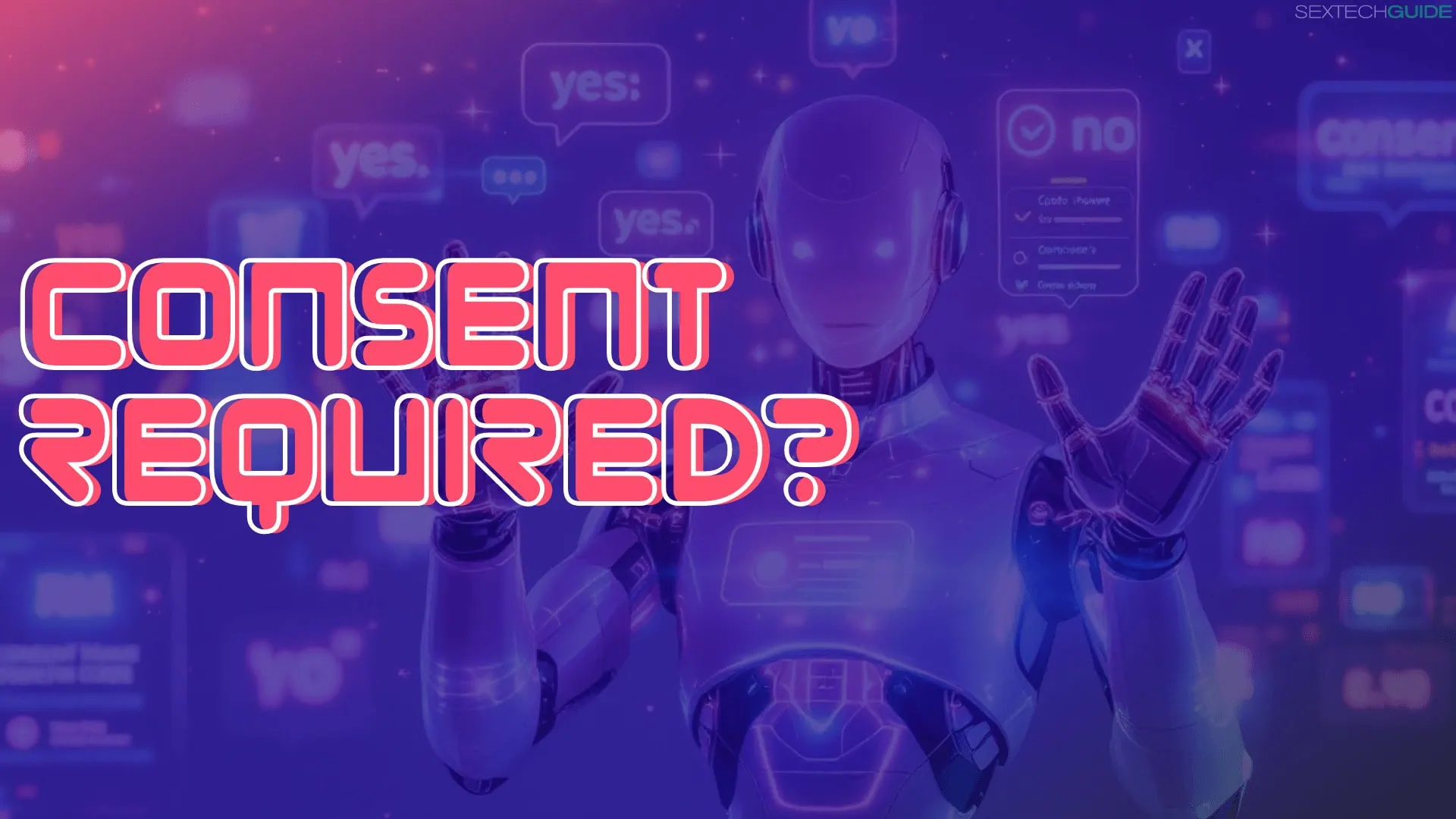A law researcher has proposed that sex robots be designed to “explicitly communicate consent“, so that “harmful assumptions” men may hold about women and consent can be challenged.
Carlotta Rigotti, a post-doc researcher at Leiden University’s law school, published a paper called Desire in Code: Legal Perspectives on Sex Robots and Consent in the Law, Culture and the Humanities Journal. She wrote that the sex robot industry could adopt a code of conduct under the EU AI Act, to guide “alternative, affirmative consent design approaches”.
Today many sex robots come equipped with AI chatbot and voice technology, allowing you to speak with your bionic beaux. While many sex robots can speak (and moan) enthusiastically about sex, deep discussion about consent for sex acts is rarely a built-in function.
Rigotti wrote that “since users often perceive sex robots as human-like, the sex robot’s responses and the user’s reactions shape understandings of sexual consent in gendered relationships.”

Therefore, Rigotti argues, “consent could become a necessary criterion for legitimizing encounters with human-like machines”.
A sex robot Code of Conduct
Even high-end sex robots sold for home use have relatively limited movement ability, while their ‘intelligence’ rarely consists of more than their mouth being hooked up to an AI chatbot system.
Rigotti did not argue that sex robots are in any way sentient, or that they should give consent for sex for their own wellbeing. Rather, her view is that men having sex with a humanoid object with no consent element could have dangerous implications for how they treat human women.
She wrote: “Although sex robots neither consent nor experience harm as humans do, their programmed and deceptive responses to sexual advances can distort the understanding of sexual consent within gendered relations, while misleading users about the artificial nature of their interactions.”

One answer to this issue, according to Rigotti, could be AI sex robots coming under the remit of a code of conduct under the European Union Artificial Intelligence Act (EU AI Act), which was approved in 2024. The Act regulates AI design, and is set to come into full force for EU member states in August 2026.
Sex robot companies should, Rigotti wrote, recognize “how their technologies may reproduce subordinating and oppressive dynamics, particularly through non-consensual interactions”.
She added that such a code of conduct could steer sex robot companies to design robots that “explicitly communicate consent”. They could do this by verbal affirmation or “other behaviors that simulate positive desire and willingness”.
Rigotti suggested that the purpose of this requirement would be to instill the notion of consent as vital to all kinds of sex.
She wrote that while a sex robot giving consent cues “cannot substitute for the complexity of human interactions – where consent is often fluid, situational, and influenced by social scripts – it can challenge harmful assumptions, promote the desirability of affirmative cues, and support broader efforts to normalize consent as a necessary, dynamic, and mutual process.”
The age of compliance?
Whether a specific sex robot code of conduct ever becomes part of the EU AI Act or not, the AI Act has potential to affect the sex robot industry in the EU.
Rigotti claimed that sex robots are likely to be categorized under the Act as posing “limited risk” to humans, because they are designed for direct interaction with individuals. She wrote that there is also potential for sex robots to be classified as “high-risk” if they are equipped with emotion recognition AI systems. This could trigger strict compliance requirements.

A sex robot could, argued Rigotti, even be prohibited in the EU by the AI Act, if the robot’s AI was found to be programmed to deceive or exploit the vulnerabilities of users.
“By aligning AI advancements, particularly in sex robots, with values of autonomy, equality, and respect for fundamental rights, regulation can prevent the reinforcement of harmful gendered hierarchies and instead foster self-empowerment and expression in sexual and intimate spheres,” she wrote.
Right now, this is largely hypothetical, as there are very few companies working on providing a sex robot with both movement capabilities and a level of ‘intelligence’. However, as the cost of building similar robots comes down, it’s an issue we’ll have to reckon with sooner or later.






Leave a Reply